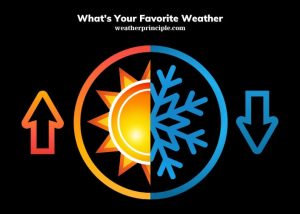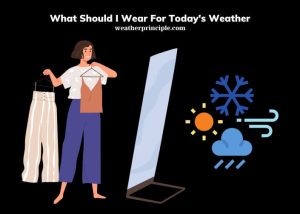Published on: May 7, 2023
Written by Shaown Khan / Fact-checked by Kader Khan
As temperatures start to drop, homeowners may find themselves asking, “Can cold weather cause breaker to trip?” It’s a valid concern, as a tripped breaker can lead to power loss, increased energy bills, and potential hazards. In this comprehensive article, we’ll explore the causes of breakers tripping in cold weather and offer practical solutions to prevent it.
Can Cold Weather Cause Breaker to Trip?
The Short Answer
Yes, cold weather can cause breakers to trip. This typically occurs because the demand for electricity increases during the winter months, which puts additional strain on your electrical system. However, there are several other factors that can contribute to this issue.
The Detailed Explanation
To understand why breakers trip in cold weather, it’s essential to know how a breaker works. Let’s dive into the reasons behind this phenomenon:
Increased Electrical Demand
Appliances and Heaters
Cold weather increases the demand for electricity as homeowners use heating systems, electric blankets, and space heaters to stay warm. These devices consume a significant amount of power, causing breakers to trip if the electrical system can’t handle the additional load.
Holiday Lights and Decorations
The winter season brings holidays and festive decorations, which often include lights and other electric-powered items. These decorations can put extra strain on the electrical system, leading to breaker trips.
Electrical System Issues
Overloaded Circuits
When too many appliances are connected to a single circuit, it can lead to an overload, causing the breaker to trip. This situation is more likely to occur in cold weather due to the increased use of electrical devices.
Faulty Breakers
Sometimes, the issue isn’t with the electrical demand but with the breakers themselves. Older or damaged breakers can be more susceptible to tripping, especially during cold weather.
External Factors
Moisture and Corrosion
Cold weather can cause condensation to form on electrical components, leading to moisture buildup and corrosion. This can create short circuits and cause breakers to trip.
Power Surges
Winter storms can lead to power surges, which can cause breakers to trip as a protective measure to prevent damage to electrical devices.
Preventing Breaker Trips in Cold Weather
Now that we’ve covered the reasons behind breakers tripping in cold weather, let’s discuss some practical tips to prevent this issue:

- Upgrade your electrical system: If your home has an older electrical system, consider upgrading it to handle the increased electrical demand during the winter months.
- Spread out the load: Avoid connecting too many appliances to a single circuit, and try to balance the electrical load across multiple circuits.
- Use energy-efficient appliances: Consider investing in energy-efficient heaters and appliances to reduce the strain on your electrical system.
- Inspect your breakers: Have an electrician inspect your breakers to ensure they are in good working condition.
- Keep electrical components dry: Make sure your electrical panel and outlets are free from moisture and corrosion.
Frequently Asked Questions
Can cold weather cause a breaker to trip even if the electrical demand is not increased?
Yes, external factors such as moisture and corrosion can cause breakers to trip in cold weather, even if there isn’t a significant increase in electrical demand.
How can I tell if my breaker is faulty?
Some signs of a faulty breaker include frequent tripping, a burning smell near the breaker panel, or physical damage to the breaker itself. It’s best to consult an electrician for a professional assessment.
What should I do if my breaker keeps tripping in cold weather?
First, try to identify and address the cause by following the prevention tips mentioned earlier. If the problem persists, consult a professional electrician for an inspection and potential system upgrades.
Are some types of breakers more susceptible to tripping in cold weather?
Older or damaged breakers can be more prone to tripping in cold weather. Upgrading to modern, high-quality breakers may help prevent this issue.
Can power surges in cold weather damage my appliances?
Yes, power surges can potentially damage your appliances. Installing surge protectors can help safeguard your devices from damage.
Is it normal for breakers to trip occasionally in cold weather?
While it’s not uncommon for breakers to trip during cold weather, frequent tripping indicates an issue that needs to be addressed, such as an overloaded circuit or a faulty breaker.
Conclusion
So, can cold weather cause breakers to trip? Yes, it certainly can. Increased electrical demand, issues with the electrical system, and external factors like moisture and power surges can all contribute to breaker trips during the winter months. By understanding the causes and implementing preventive measures, homeowners can minimize the risk of breaker trips and ensure a safe and comfortable winter season.
You May Also Like:



